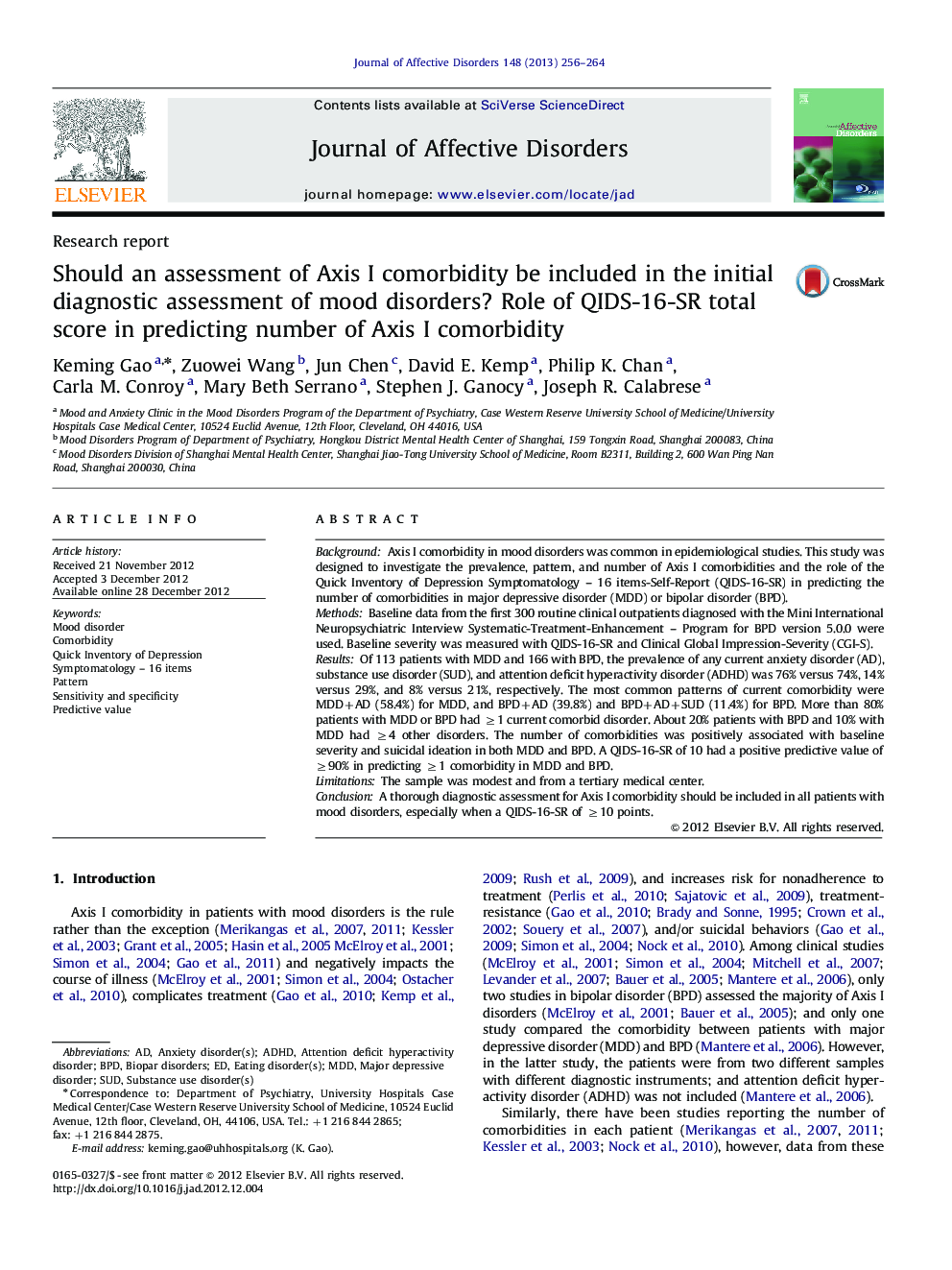| کد مقاله | کد نشریه | سال انتشار | مقاله انگلیسی | نسخه تمام متن |
|---|---|---|---|---|
| 6234427 | 1608174 | 2013 | 9 صفحه PDF | دانلود رایگان |

BackgroundAxis I comorbidity in mood disorders was common in epidemiological studies. This study was designed to investigate the prevalence, pattern, and number of Axis I comorbidities and the role of the Quick Inventory of Depression Symptomatology - 16 items-Self-Report (QIDS-16-SR) in predicting the number of comorbidities in major depressive disorder (MDD) or bipolar disorder (BPD).MethodsBaseline data from the first 300 routine clinical outpatients diagnosed with the Mini International Neuropsychiatric Interview Systematic-Treatment-Enhancement - Program for BPD version 5.0.0 were used. Baseline severity was measured with QIDS-16-SR and Clinical Global Impression-Severity (CGI-S).ResultsOf 113 patients with MDD and 166 with BPD, the prevalence of any current anxiety disorder (AD), substance use disorder (SUD), and attention deficit hyperactivity disorder (ADHD) was 76% versus 74%, 14% versus 29%, and 8% versus 21%, respectively. The most common patterns of current comorbidity were MDD+AD (58.4%) for MDD, and BPD+AD (39.8%) and BPD+AD+SUD (11.4%) for BPD. More than 80% patients with MDD or BPD had â¥1 current comorbid disorder. About 20% patients with BPD and 10% with MDD had â¥4 other disorders. The number of comorbidities was positively associated with baseline severity and suicidal ideation in both MDD and BPD. A QIDS-16-SR of 10 had a positive predictive value of â¥90% in predicting â¥1 comorbidity in MDD and BPD.LimitationsThe sample was modest and from a tertiary medical center.ConclusionA thorough diagnostic assessment for Axis I comorbidity should be included in all patients with mood disorders, especially when a QIDS-16-SR of â¥10 points.
Journal: Journal of Affective Disorders - Volume 148, Issues 2â3, June 2013, Pages 256-264